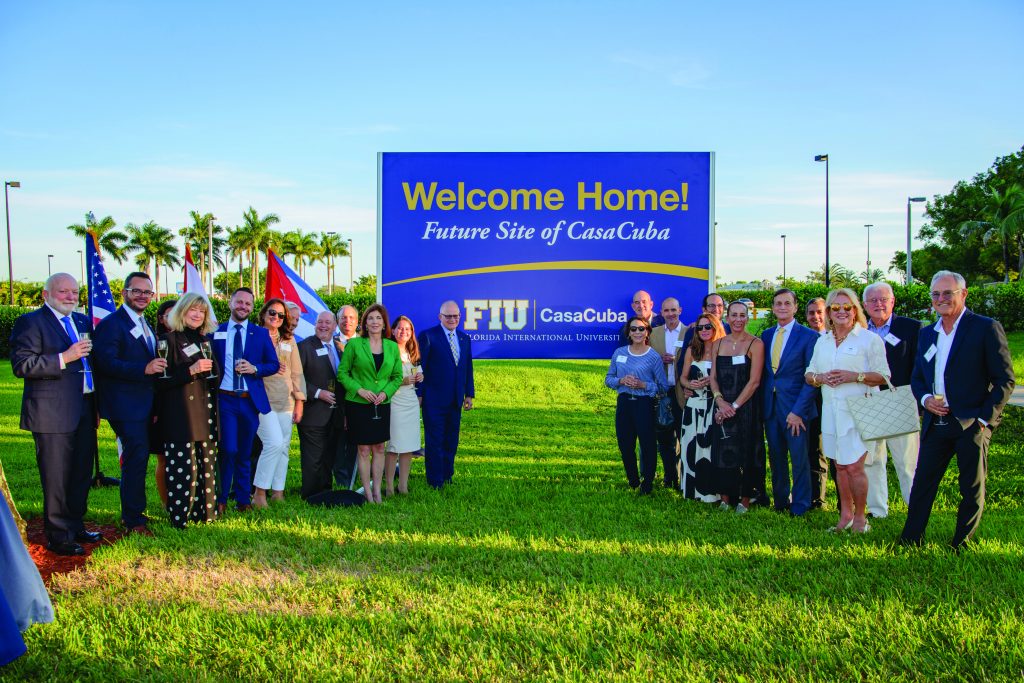Prominent collections of Cuban art, history and music have been at FIU for some time. As has Cuban-related research, notably through the Cuban Research Institute in the Steven J. Green School of International and Public Affairs.
Yet, the university has long had a bigger dream: a dedicated, state-of-the-art space for its significant academic and non-academic assets related to Cuba.
The dream is now becoming reality.
In 2015, CasaCuba was formalized at FIU after a group of Cuban-American community leaders came forth to support the initiative. Envisioned as a 50,000-square-foot facility, it aspires to be the leading center outside of Cuba for the creation and sharing of knowledge about Cuba and the celebration of Cuban culture. It will function in three main ways: as a community venue, think tank and cultural institution.
As a venue, CasaCuba will be a home away from home that allows expatriates, Cuban descendants and those with an interest in Cuba to share experiences. As a think tank, it will provide a forum for rigorous exploration and discussion, leveraging the Cuban Research Institute’s reputation as the leading center for the study of Cuba in the United States. Finally, as a cultural institution, it will celebrate artistic expression in all its forms, recognizing talent and achievement and inspiring creativity in the Cuban community and beyond.
“No other university can claim FIU’s expertise in Cuba scholarship, or FIU’s commitment to preserving the Cuban heritage,” said Executive Director María Carla Chicuén. “We are building an inspiring and inclusive second home.”
Already, the initiative has had several notable achievements. CasaCuba has received significant philanthropic gifts from the John S. and James L. Knight Foundation; the National Endowment for the Humanities; and Agustín Arellano Sr. and his family. It has secured Chicuén, a prominent board of advisors, and the area on MMC campus for its facility. It has also launched operations and community engagement initiatives; for example, the ORÍGENES dinner series in partnership with the Chaplin School of Hospitality & Tourism Management, the student internship at the Emilio Cueto Collection in Washington D.C., and the Contemporary Cuban Literature Circle in partnership with Books & Books.
With these early accomplishments, CasaCuba has had an auspicious beginning. In the months and years to come, it will undoubtedly look to build on these as the vision becomes a reality.
“CasaCuba’s mission is close to my heart,” said Agustín Arellano Sr., chair of the CasaCuba Board of Advisors. “I’m looking forward to seeing this project develop into a true home for Cubans and a resource for our community.”

